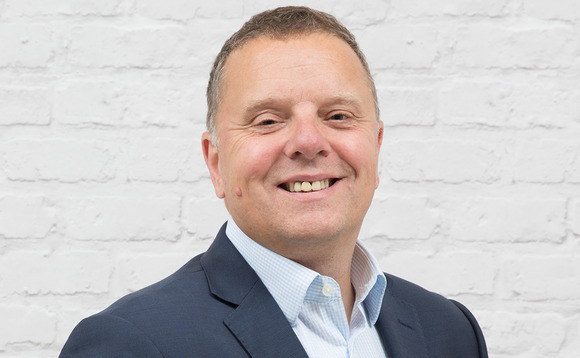
GP Profile: Palatine looks to B2B, continued ESG value creation

Following the final close of Palatine Private Equity IV, which has now made four platform investments, the GP's managing partner, Gary Tipper, speaks to Unquote about the firm's deal pipeline, its focus on ESG, and how its portfolio has weathered the pandemic
Palatine Private Equity IV held a final close in May 2021 on £220m, as reported by Unquote. The vehicle will continue to make investments of around £10-30m, targeting UK-based lower-mid-market businesses.
In spite of the pandemic and a slight delay to the final close of its latest fund, 2020 remained a busy year for the GP, says its managing partner, Gary Tipper: "Across our buyout and impact strategies, we have done seven new deals since March last year." Palatine IV made its fourth platform deal in June 2021, acquiring a majority stake in homecare provider Routes Healthcare.
Following the Palatine IV fundraise, the GP is also gearing up for the launch of a new impact fund. "Our Impact Fund has done eight deals in total and is nearly 70% invested, and as such we are now planning to raise the next one," Tipper says.
Palatine's second impact investing fund was registered in December 2019, according to Unquote Data. Its predecessor held a final close in 2017 on its £100m hard-cap. The strategy deploys equity tickets of up to £10m, targeting investments that deliver positive social impact. Recent investments from the fund include TranScrip, a Wokingham-based business that provides services such as drug safety and clinical development consulting to pharmaceutical and biotechnology companies.
A year of two halves
"2020 was a year of two halves," notes Tipper. "H1 was very quiet, as a lot of deals got pulled due to Covid. By Q4, we saw the market coming back, partly due to many vendors trying to get things done before the rumoured capital gains tax changes came in (which in the end didn't happen anyway). In Q1 2021, we were very busy and we saw a lot of activity and pricing pressure on certain deals and sectors."
The pandemic also presented buy-and-build opportunities for Palatine. "We always look to supplement organic with acquisitive growth in our investee companies," says Tipper. "Almost every deal in Fund III has completed one or multiple acquisitions – we were able to acquire some smaller businesses that have found it more difficult to survive in the pandemic but are now part of a larger business."
Palatine also expects 2021 to remain busy, says Tipper. "The pipeline in Q2 dropped a little as there was so much activity in Q1 – many people pushed deals forward from Q2/3 to Q1. But we are seeing it build up again, so Q3/4 will be quite active."
"We have a couple of exits in the process that we expect to complete in the next couple of months, plus a partial exit, which we are expecting to complete before the end of the year," Tipper says. The GP's most recent exit is road safety course provider TTC Group, which Palatine sold in a management buy-back supported by Pricoa Private Capital in May 2021.
Rising to the challenge
Although many GPs across Europe have seen their anticipated holding periods for their portfolio companies increase due to the pandemic, Palatine has not been significantly affected by this, Tipper says. "Holding periods have extended due to what happened in 2020 and early 2021, but it has not extended the life of many of our portfolio companies. The timeframes for our hospitality businesses like Gusto and Alchemist's have been pushed out a little. But it has not been that significant overall for B2B companies, so our exit timings for those are not far off our original expectations."
"The pandemic has not changed our strategy," says Tipper. "In Fund III we invested a lot in B2B companies in sectors where we had a lot of knowledge: IT, technology, and healthcare. We also acquired global sustainability consultancy Anthesis this March. We are really focusing on B2B in Fund IV – the consumer sector has been significantly impacted by Brexit and then Covid. Leisure and hospitality is a tough place at the moment, so a company would have to be exceptional for us to invest at the moment."
While making new platform investments in the sector might be challenging, Palatine has several leisure and hospitality assets in its portfolio from previous funds that the GP has supported throughout the pandemic. "Our main hospitality and leisure assets and their management teams have performed unbelievably well and have really stepped up to the plate," says Tipper. "Difficult discussions had to be held with landlords and suppliers, but they have all been done in the right way and the companies will come through stronger."
The GP remains confident that, in spite of the testing times for leisure and hospitality, its portfolio companies in these sectors will bounce back. In fact, the GP is already seeing the effects of returning demand. "Verdant Leisure was closed for a few months, but they still performed ahead of budget due to the demand for staycations," say Tipper. "Since the partial reopening of hospitality, the level of customer demand at both Alchemist and Gusto has been exceptional – they will get back to their pre-Covid performance. The furlough scheme and VAT deferrals have also helped."
Value creation and sustainability
Even beyond Palatine's impact fund strategy, ESG is a core part of Palatine's value creation and continues to be strongly integrated into the GP's investment decisions, Tipper says. At the time of Unquote's previous GP Profile on Palatine in 2016, partner and Impact Fund head Beth Houghton also emphasised the GP's commitment to ESG, prior to the launch of its dedicated impact investment strategy.
"We have been implementing our ESG strategy for more than 10 years now – we were probably one of the first mid-market UK PE houses to commit to this in terms of people and costs," Tipper notes. "It is good to see that the PE sector as a whole is now waking up to the importance of making your investee companies sustainable."
Palatine puts in place an ESG strategy for each business based on six core areas: climate; one-planet supply chain; people; customers and community; and leadership. "For every business, we have a baseline review where we go over the ESG aspects with our six-pillar approach," says Tipper. "We rank these at the start of their journey with us and review them every 12 months. We also review ESG performance and returns – there is clear correlation between returns and ESG performance."
Tipper points to its recent investment in public sector cloud communications service FourNet as a concrete example of how ESG can inform investment decisions and create value. "When pitching for public sector contracts, a big part of the tender process is now around your ESG credentials and that you run your business in the right way, and that you look after your customers, suppliers and workforce – otherwise your chance of winning contracts is diminished," he explains. "We will be able to help FourNet with what we have learned over the years, knowing what is best practice with supply chains, customers and employee engagement. We are therefore in a good position to help them to perform better and win more contracts."
Latest News
Stonehage Fleming raises USD 130m for largest fund to date, eyes 2024 programme
Sponsor acquired the public software group in July 2017 via the same-year vintage Partners Group Global Value 2017
Stonehage Fleming raises USD 130m for largest fund to date, eyes 2024 programme
Czech Republic-headquartered family office is targeting DACH and CEE region deals
Stonehage Fleming raises USD 130m for largest fund to date, eyes 2024 programme
Ex-Rocket Internet leader Bettina Curtze joins Swiss VC firm as partner and CFO
Stonehage Fleming raises USD 130m for largest fund to date, eyes 2024 programme
Estonia-registered VC could bolster LP base with fresh capital from funds-of-funds or pension funds









